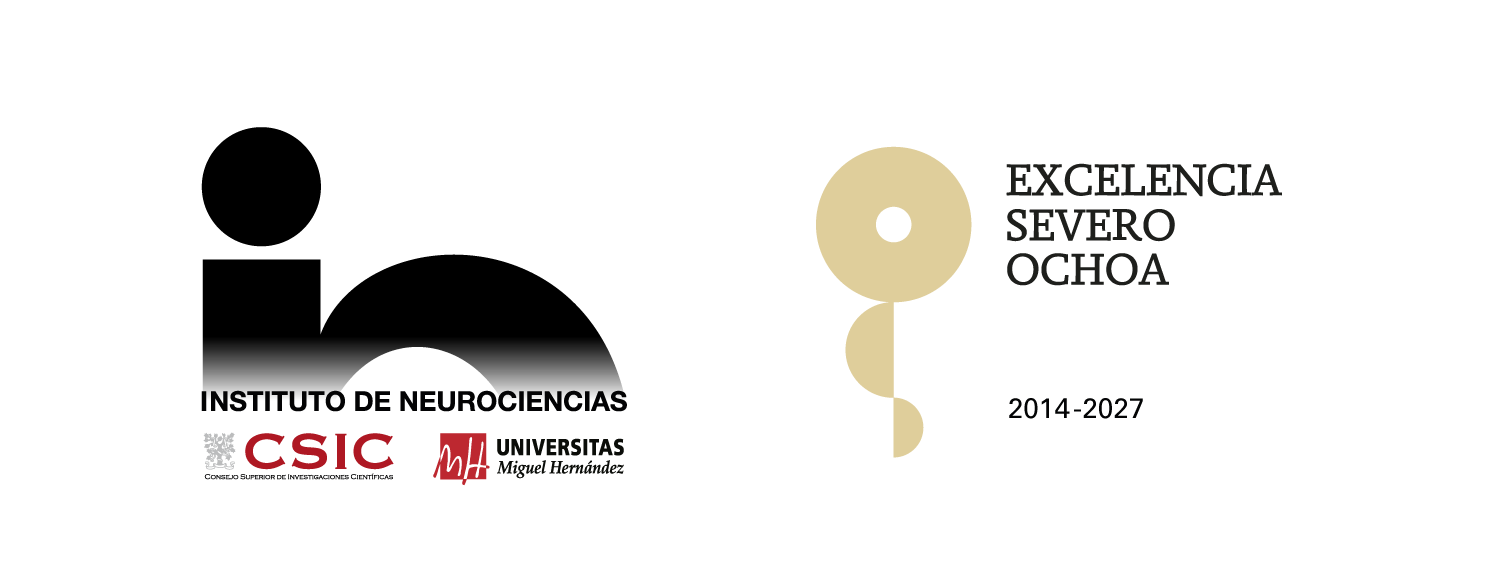The Genotyping Service of Transgenic Animals (UGAT) is an essential part of the Animal House and has as a mission to collaborate in the genotyping of the animals born at the RMG in the most efficient and consistent way.
The UGAT picks up the samples generated by the Animal House technicians when they wean and label the animals. The obtained DNA is analysed by PCR in order to determine the genotype of the animals.
The goal of the UGAT is to accelerate the genotyping process so the animals remain the shortest possible time without a genetic identification, and always in the one-month time period.
Users need to contact the UGAT to register their lines and should provide the UGAT with the needed primers as wells as a PCR program that produces accurate and reproducible results. Should the users need help with the design of primers or the PCR program, the UGAT provides technical support whenever is needed.
It is the responsibility of the users to determine the final result of the PCR and assign the genotype to each animal. Once the result is decided the users should introduce the result in the Animal House Management Program AniBio. Users need to place orders to euthanise the animals with undesired genotypes to maintain the animal population at the RMG to a minimum.
All communication with the UGAT is made through e-mail at: genotipado@umh.es
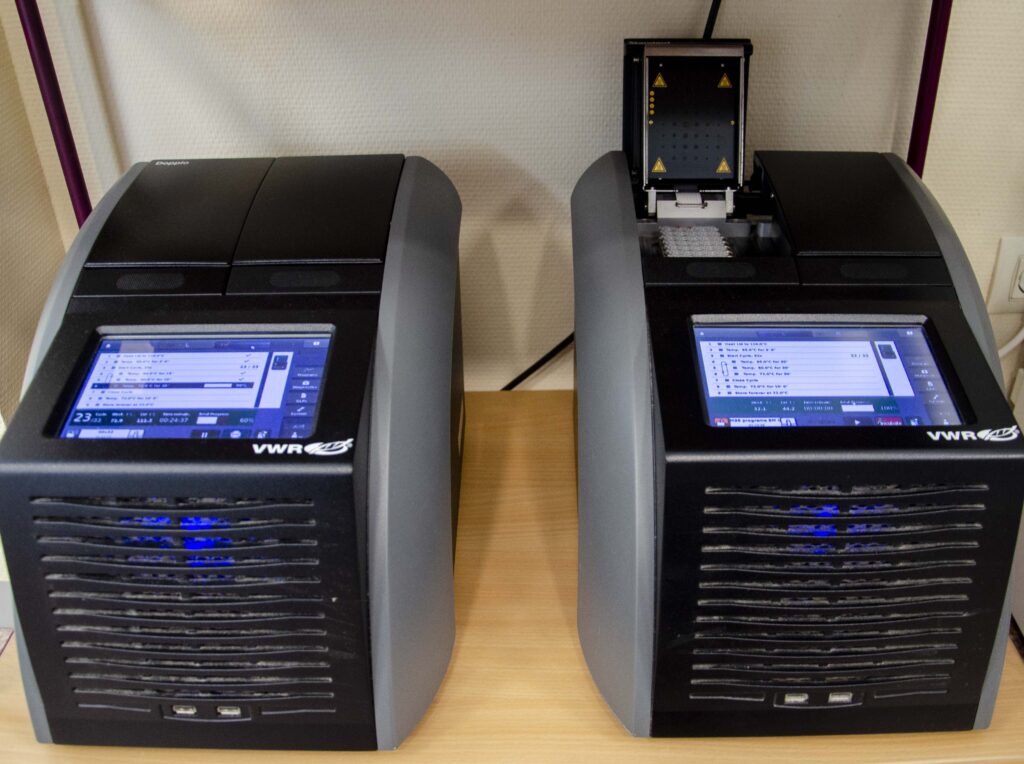
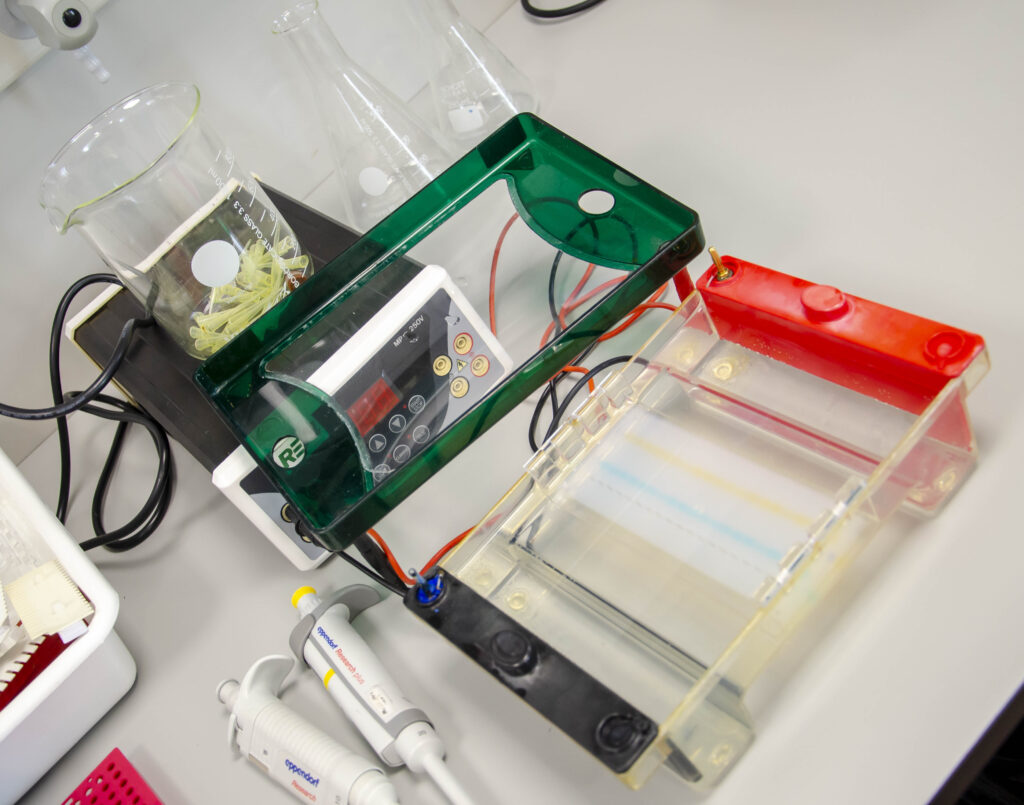
Photos: Instituto de Neurociencias.
Rules
In order to use the service, the Project’s PI must communicate the UGAT its intention through the genotipado@umh.es account.
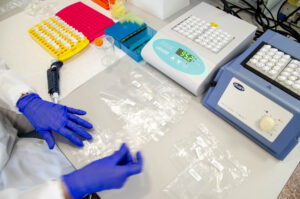 IN order to be authorized to use the service this rules must be followed:
IN order to be authorized to use the service this rules must be followed:
- Have an approved Animal Experimentation in order. The project has to be approved by the Generalitat Valenciana and cover the breeding and maintenance of those animals.
- Place a request of service.
- Provide information of all the lines that wants to be genotyped by the UGAT including:
-Name of the line
-Genes to genotype
-Escheme of the crosses in the line (Homo x Homo, Hetero x Hetero, Hetero x wt…)
-Whenever all the animals have the same genotype for a gene, the corresponding genotyping will be performed until they are all homozygous and after that it will not be performed (1 genotyping every 5 litters in case of necessity)
-Users should inform UGAT about the reactions that need to be performed when they receive the communication from the RMG that there are new samples.
-Users should avoid asking for unnecessary genotyping: if only one sex will be used or if there is one reaction that would help to eliminate reaction it should be notified to the UGAT
-Primers will be provided in solution at 100 µM
-Users will provide a program that produces a clear and consistent result
- Users take the compromise to maintain the number of reactions required to a minimum and they will try to eliminate the unnecessary reactions.
- Users will place orders for euthanasia of unwanted animals as soon as possible and always in the one-month period.
- The only animals that will be genotyped are the ones resulting of weanings, and all other experimental animals such as embryos or tissue samples that will be performed by users.
- In those cases that it is needed to obtain a new sample of the animals, users will ask the RMG for a new sample. The repetition of animal sampling and genotyping will be performed by the UGAT only for the breeding animals and after having discarded other alternative methods.
- In those cases where the PCR reaction did not work, it will be possible to ask for the repetition of the reaction if the reason is technical problems other that a non optimized reaction.
The file with the standards can be found below in the intranet documents (with identified access):
Only visible for members.Intranet access
- Facility email » genotipado@umh.es
- Scientific manager of the Genotyping service:
Joan Galcerán
Phone: ext. 9474
Email: j.galceran@umh.es
- Technical:
Trinidad Gil García
Teléfono: ext. 9289
Email: m.gil@umh.es
Eva Sabater Sánchez
Teléfono: ext. 9289
Email: eva.sabater@umh.es
Eduardo Agüera López
Teléfono: ext. 9289
Email: eaguera@umh.es
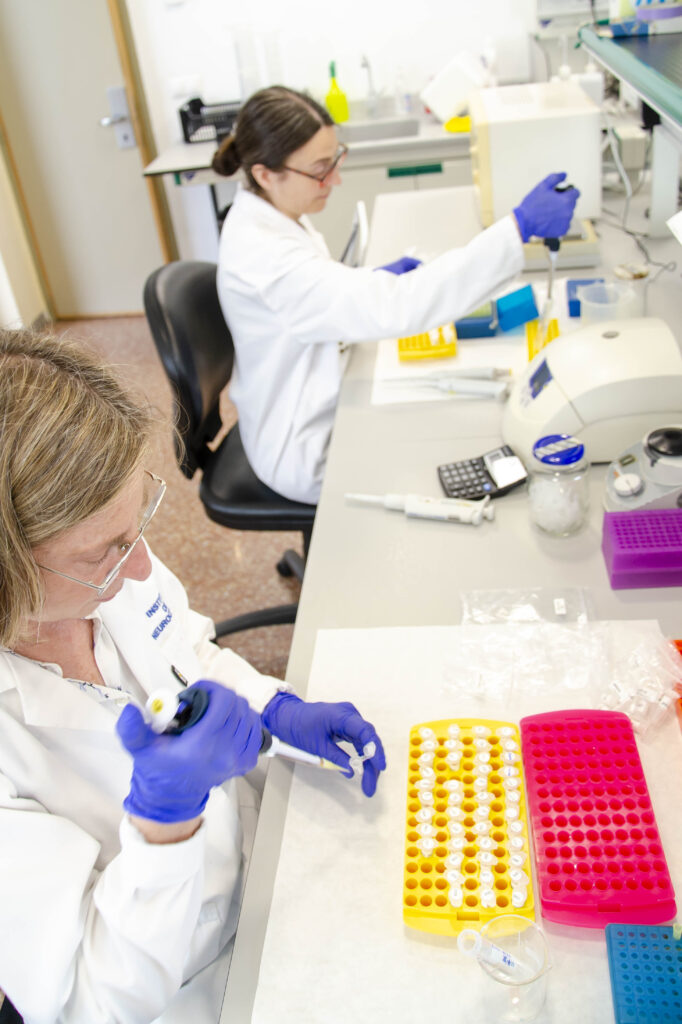
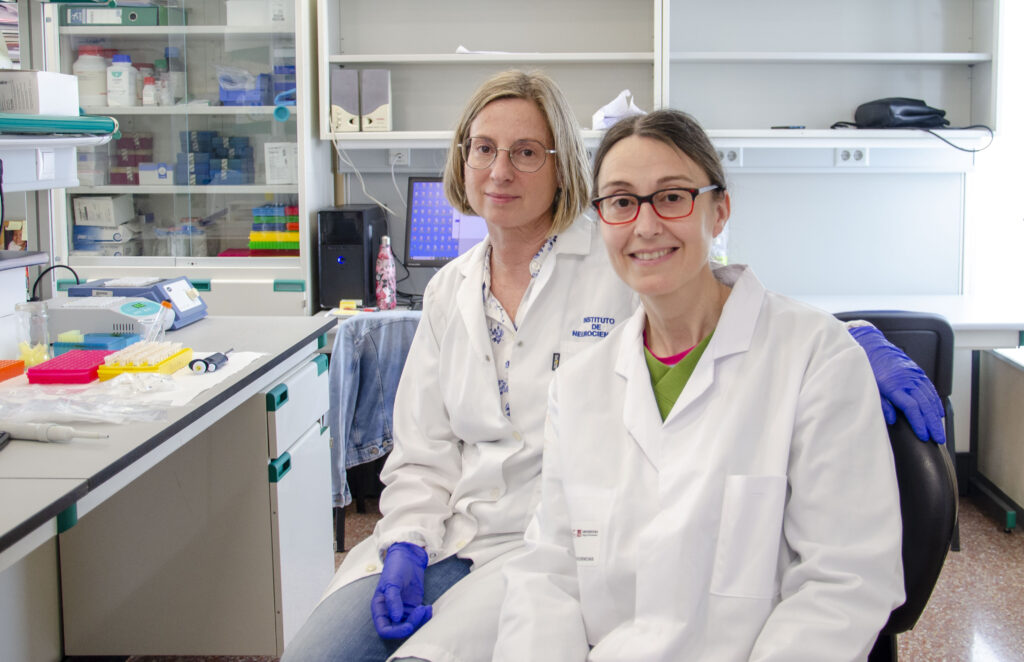
Photos: Instituto de Neurociencias

 Español
Español